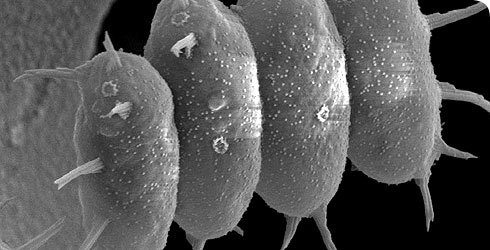Desmodesmus subspicatus (pond scum, green weed)
Desmodesmus subspicatus is a large (but still microscopic) freshwater green alga that can be found growing in the water column as free-floating plankton. It is non-motile
Green algae are photosynthetic organisms. Their colour is due to the green pigment chlorophyll, which is surrounded by a membrane and forms a conspicuous structure called a chloroplast.
Desmodesmus is cosmopolitan in distribution and is found worldwide. It is often referred to as a ‘green weed’, because it grows prolifically and can produce ‘bloom’ conditions when excess nutrients are present (eutrophication).
It is at the base of the food chain and it is important source of food for zooplankton and/or fish.
Desmodesmus may be a useful bio-indicator of nutrient conditions in lakes and as a model organism for investigating physiological, ecological and/or evolutionary questions.
Species detail
-

Taxonomy
This alga is characterised by flat colonies of cells lying parallel to one another. Discover what high resolution microscopy reveals about the fine structure of these cells.
-

Behaviour
Desmodesmus subspicatus can produce two different forms colony or unicell, depending on the environmental conditions. Find out what triggers the switch from one form to the other.
-

Uses for green algae
Green algae are a good source of vitamins and minerals, and can be grown in mass culture. Discover some of their current and potential uses.
Images
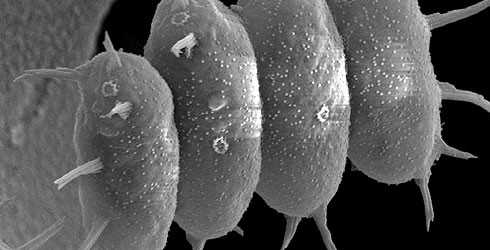
Desmodesmus subspicatus as seen through a scanning electron microscope.
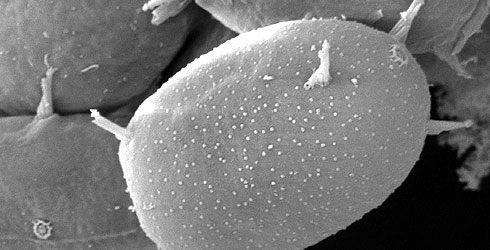
A Desmodesmus subspicatus unicell as seen under a scanning electron microscope.
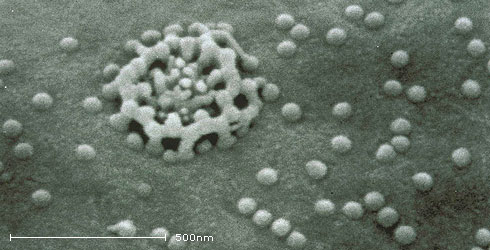
An SEM of Desmodesmus subspicatus showing warts and an opening.
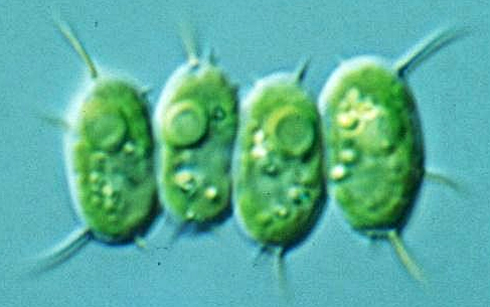
Desmodesmus subspicatus as seen under a light microscope.
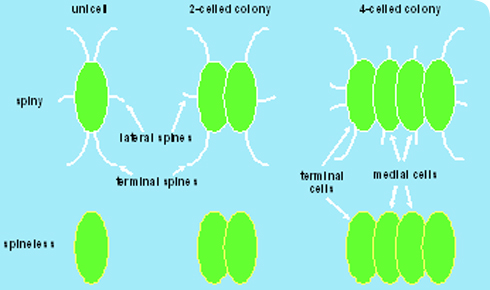
Types of unicells and colonies formed by Desmodesmus subspicatus.
About the author

Prof Elliot Shubert
Editor of Systematics and Biodiversity and Associate Editor of European Journal of Phycology; research on the phenotypic plasticity and gene expression in the green alga, Desmodesmus
A word from the author
'This species has been chosen as a species of the day because it is an easy alga to recognise with the light microscope with its prominent spines and colonial morphology.'
